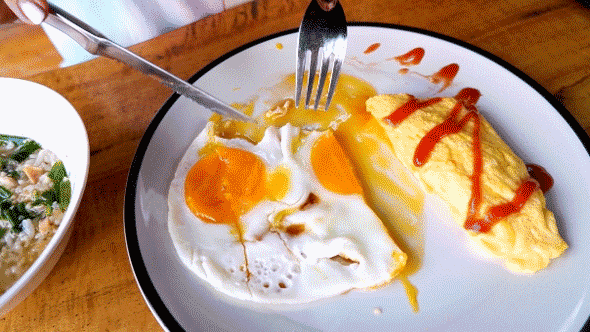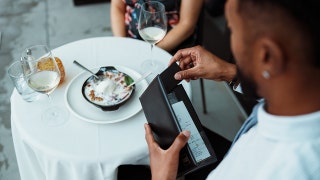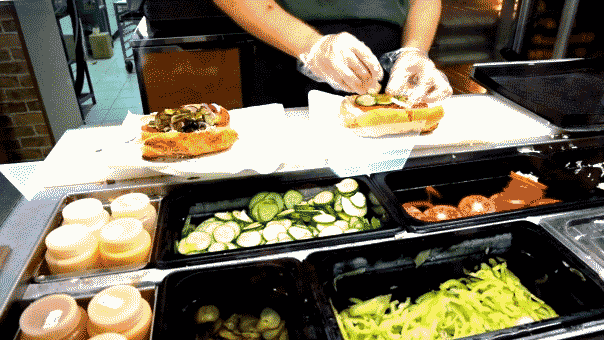
Buying and selling reservations at the hottest restaurants has gotten so trendy, it’s earned a name – “table scalping.” (iStock)
Back before there were smartphones, reservations at the finest restaurants went to VIPs, celebrities and walk-ins carrying a wad of greenbacks to grease some palms.
But now reservations are becoming a saleable commodity, as increasing numbers of companies create apps that, in partnership with some of the top restaurants in town, hold a table for anyone willing to shell out some extra cash.
"VIP tables – they go to the Al Gores of the world. Is that democratic? By opening it up and putting a price on it, anybody can go.”
For around $20 (prices vary), companies like Table8 in San Francisco and Zurvu and Resy in New York secure reservations at the hardest-to-get restaurants – then sell them to people looking to dine there.
It’s gotten so trendy, it’s earned a name – “table scalping.” And it’s not without controversy. While some apps work directly with restaurants to book the reservations, others have been using more surreptitious methods.
One app, ReservationHop, recently ignited a firestorm of controversy. Its founder, Brian Mayer, dubbed himself “the most hated man in San Francisco” after he was hit with a barrage of online derision – he earned the hashtag #Sleezeball – for his pay-for-reservation platform.
His technique was to make the reservations himself under pseudonyms, then sell the reservations (he says he’s now working with restaurants directly).
KillerRezzy, in New York, showcases restaurants in Manhattan, Brooklyn and the Hamptons on Long Island, listing tables at dozens of top hotspots, including Bar Boulud, Navy and Nobu – each for $25 a pop.
But Bar Boulud and Nobu said they were listed without their knowledge and were asking to be removed.
KillerRezzy owner Sasha Tcherevkoff told FoxNews.com that his company will always remove restaurants that request to be taken down from his site.
In addition to partnering with restaurants, KillerRezzy books tables and offers members reservations based on their user profile. If the table is declined, it becomes publicly available inventory --which KillerRezzy can sell.
Tcherevkoff says he has a series of protocols and algorithms set up to make sure reservations from one or a group of restaurants aren't overly targeted. But he believes success doesn't come strictly with the restaurant's cooperation.
"Working in network, it limits the consumer," he says. "There are some restaurants that are never going to accept a pay-to-play arena."
Table8 co-founder Santosh Jayaram says restaurateurs understand the difference between apps that work behind eateries' backs, and those like his that operate transparently through partnerships.
"We strongly believe that companies doing this in a scammy fashion will be shut down by the restaurants, and the conversation will once again turn to value,” explains Jayaram, whose app is in beta in San Francisco with plans to expand to New York in the fall and other cities next year.
“People want this,” he says. He adds that Table8 has been selling out at the nearly two dozen restaurants with which it’s partnered so far.
Jayaram and partner Pete Goettner launched Table8 when they realized that many travel and entertainment outlets base their price on demand – so why not restaurants, which face the lowest profit margins?
“If you wanted a flight to San Francisco tomorrow, you would probably pay $1,800 on Virgin Atlantic, and chances are you’ll sit next to a guy who paid $400,” says Jayaram. “These guys (restaurant owners) make 5 percent if they’re lucky. It doesn’t make sense.”
The logistics of the different apps vary. Table8 works with restaurants in San Francisco to set aside a block of elite reservations. Customers then use the app to pay a “reservation fee” that Table8 shares with the restaurant. Zurvu and Resy have similar models.
Shout is another app, but its model is different. It allows consumers to exchange reservations directly, with no restaurant involvement. It's up to the users whether to list a price or offer the reservation as a courtesy to other "Shouters", as the app's users are called.
Co-founder Zachariah Reitano calls his service “a safe, mobile Craigslist,” where people often give up their reservations at the last minute simply because they can’t make it.
“They’re usually looking to get some small return on the time investment they put in to get the reservation,” Reitano says.
While there's always the possibility for abuse, he says, they're constantly tweaking the system to keep it free from exploitation by keeping an eye on how many reservations a person is selling, prices, how far in advance it's offered and other factors.
As of now, Shout doesn't take any cut of the transactions.
A recent search showed Shouters listing tables at New York restaurants including Empellón Taqueria, Craft and Babbo Ristorante, selling the reservations for $5 to $20.
Most of these restaurants aren't cheap, and adding $20 to the tab annoys many diners. Some argue that this makes it harder to go out and try the new, hip spots, unless they can pay extra for a reservation.
That’s why New York’s popular ABC Kitchen is not opting in. Instead, Michelin Chef Jean-Georges Vongerichten’s eatery uses a team of staff members and OpenTable to make reservations.
"We like that there is another way for people to access the reservations, but it is concerning to us because people are paying for something that we give away for free," says general manager Ryan Armstrong. He decries the notion that people often "stalk" ABC Kitchen’s online system and phone lines to acquire reservations, then sell them illegally.
"Imagine someone sitting at home spending the whole day booking reservations a month out,” he says. “That’s their 'job,' so to speak. They use fake names and phone numbers and we have no way to police. Then they sell the tables. This, in our opinion is wrong."
ABC Kitchen's OpenTable listing shows no openings until Aug. 25, but Armstrong says the staff has more flexibility for bookings and the bar is used for walk-ins.
"Access shouldn’t be about fees, it should be about desire. It also sets an expectation that you paid 'more than this is worth' to an extent," Armstrong says of the apps. "We have designed an experience at ABC for dining, and we price for that accordingly.”
But the reservation selling services aren’t going away, as the competition to get into these fine restaurant increases.
“Some people say it’s not democratic, I get it,” Jayaram says. “But then again, when you look at the finer details, every pinnacle restaurant has tables they keep aside, VIP tables – they go to the Al Gores of the world. Is that democratic? By opening it up and putting a price on it, anybody can go.”
Editor's note: This story now includes comment from KillerRezzy owner Sasha Tcherevkoff.








































